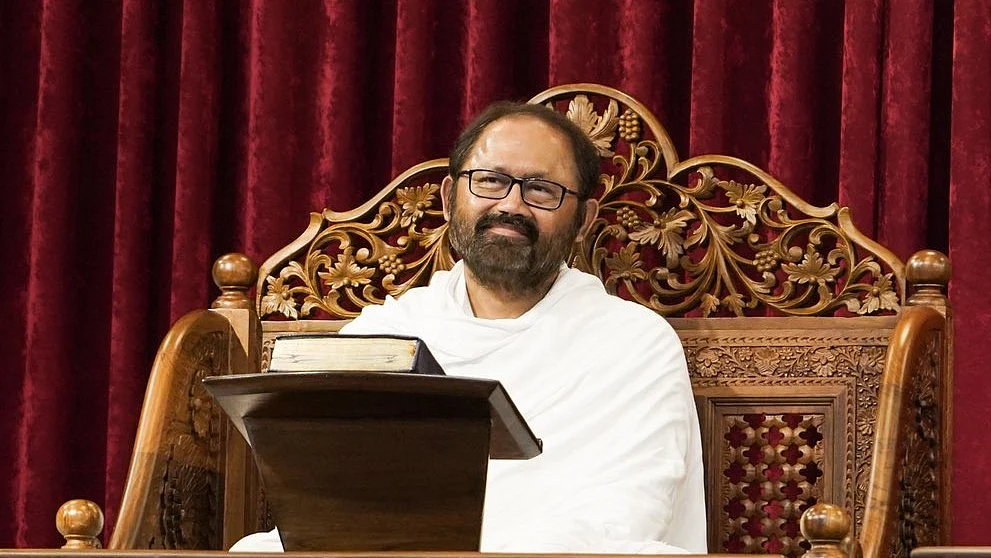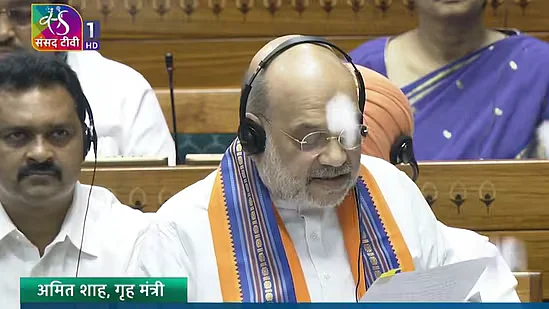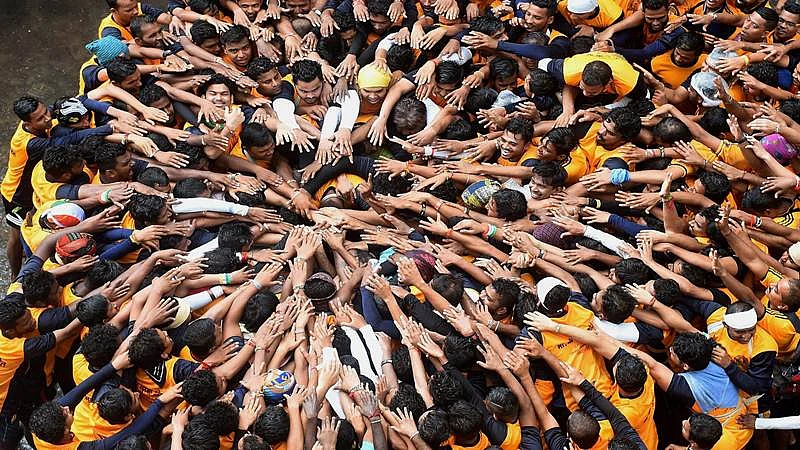No more temples or mosques. Our nascent country is more in need of the shrines of science and technology.
–Jawaharlal Nehru to his friend and West Bengal Chief Minister Dr BC Roy, February 1949, quoted by Nirad C Chaudhury
Jawaharlal Nehru may be anathema and a bête noire to our Government steeped in obscurantism and all that's irrational in the world. But his scientific temper and measured nationalism cannot be dwarfed. In these benighted times coupled with utter political mismanagement and a sort of anarchy, Nehru's universal vision assumes greater significance. In his student days in England, Nehru met Sir Bertrand Russell. The meeting with the philosopher-logician expanded Nehru's intellectual horizons and augmented his vision. Nehru's youngest sister Krishna Hutheesing wrote, ‘My brother had an aversion to all rituals and he believed that it was the extreme religiosity in the DNA of Indians since time immemorial that undermined India and paved the way for foreign invaders to come and enslave us for 1,200 years, beginning with Muhammad bin Qasim's invasion of Sind in 712 CE.’
Nehru was actually an atheist who wisely projected his atheism as agnosticism or scepticism because he knew it would be extremely disconcerting for the majority of believing Indians of a young, newly independent nation to accept someone as their leader whose faith in god and religion was zilch. So, like the sagacious Roman emperor-philosopher (what a bizarre combination!) Marcus Aurelius, Nehru preferred never to tom-tom his atheism. But he always abhorred religiosity and religious extremism. It was Nehru who, as the Prime Minister of India, tried to dissuade the then President, Dr Rajendra Prasad, from inaugurating the renovation of the Somnath temple in Gujarat. He wrote to Babu Rajendra Prasad, 'You could have your faith and I respect that, but as the President of India, visiting a religious place of a particular community is against the lofty tenets of secularism.'
Sudhir Kakar narrates an interesting incident in his autobiography, A Book of Memory (2011). Gujarati textile mill owners insisted on a Hindu priest performing the opening ritual for the new Ahmedabad Textile Industry Research Association building in Ahmedabad. Prof Kakar quotes Vikram Sarabhai as saying, “Panditji tolerated him to start with, but when [Nehru] was asked to rub his shoulder to the door, he exploded! I was so glad.”
In stark contrast, a few years ago, Defence Minister Rajnath Singh emblazoned a Rafale fighter jet with an ‘om’ and decked it with flowers, coconut and lemons, purportedly to ward off evil.
Nehru believed that god and religion served as psychological bolsters as well as boosters to helpless and beleaguered mankind. Believing in the dictum that man is the measure of all things, he placed man far and above god because to him, god was a quality, not an entity. 'The most sublime human and humane qualities in an individual turn him into a god,' Nehru believed.
Nehru had seen the effects of superstition on the lives of his people and wrote of religion that “...it shuts its eyes to reality”. He thought that religion was at the root of the stagnation and lack of progress in his country. The basis of Indian society at the time was unthinking obedience to the authority of sacred books, old customs and outdated habits. He felt that these attitudes and religious taboos were preventing India from going forward and adapting to modern conditions: “No country or people who are slaves to dogma and dogmatic mentality can progress, and unhappily our country and people have become extraordinarily dogmatic and little-minded.” He felt, therefore, that religions and all that went with them must be severely limited before they ruined the country and its people. He was deeply concerned that so many Indians could not read or write and wanted mass education to release Indian society from the limitations that ignorance and religious traditions imposed. He knew that industrialisation was needed to feed the growing population and that illiteracy denied people the skills required.
Like Rabindranath Tagore, Nehru believed that a sensitively humanistic approach to life was enough for a human to grow with a definite purpose. That's why he sent young Indira Priyadarshini to Shantiniketan to imbibe the humanistic spirit of Tagore. That Mrs Gandhi became dogmatic and superstitious, visiting all sorts of godmen to seek their blessings, is inconsequential. Nehru disliked the term spirituality and called it 'an after-dinner fancy word used, misused and abused by well-fed affluent gourmets' (from Nehru's letter to Nobel-laureate physicist Sir CV Raman, yet another sceptic). Nehru never prayed in his whole life and considered that his afterlife was not in some mystical heaven or reincarnation but in the practical achievements of a life lived fully with and for his fellow human beings: ‘...Nor am I greatly interested in life after death. I find the problems of this life sufficiently absorbing to fill my mind,’ he wrote. In his Last Will and Testament he wrote: ‘I wish to declare with all earnestness that I do not want any religious ceremonies performed for me after my death. I do not believe in such ceremonies, and to submit to them, even as a matter of form, would be hypocrisy and an attempt to delude ourselves and others.’
Like his trenchant views on god and religion, Nehru was also critical of nationalism. For him, it was an anathema. To him, nationalism was bellicose and xenophobic. He wrote, 'Nationalism is essentially an anti-feeling, and it feeds and fattens on hatred and anger against other national groups...'.
In these dark times, instead of condemning Nehru and his vision, it would be better to imbibe his scientific temper, truthfulness and candour; despite calling Gandhi his political guru and father, when a BBC interviewer asked him to define Gandhi in a sentence, the articulate Nehru told her with utmost respect, 'He was a supreme being who also made a fetish of his idiosyncrasies.' Where is that brutal honesty among today's Janus-faced politicians?
The writer is a regular contributor to the world’s premier publications and portals in several languages










